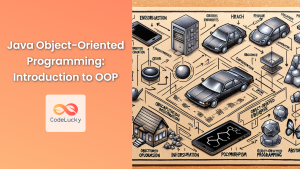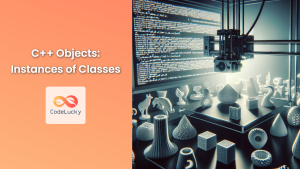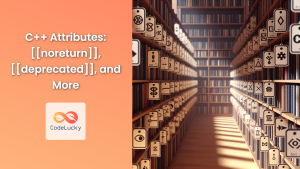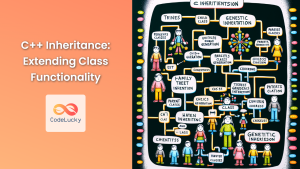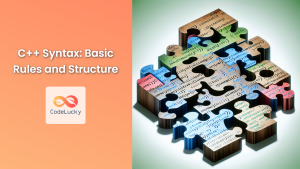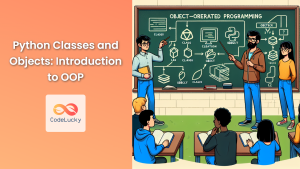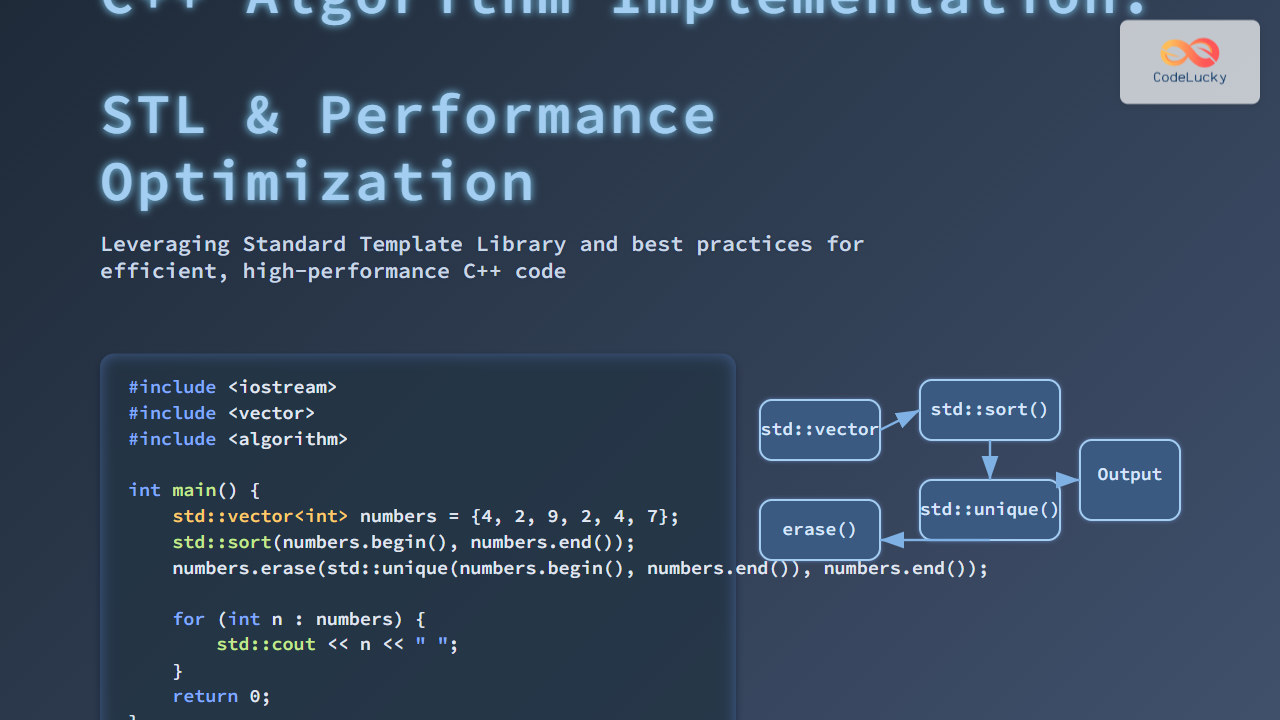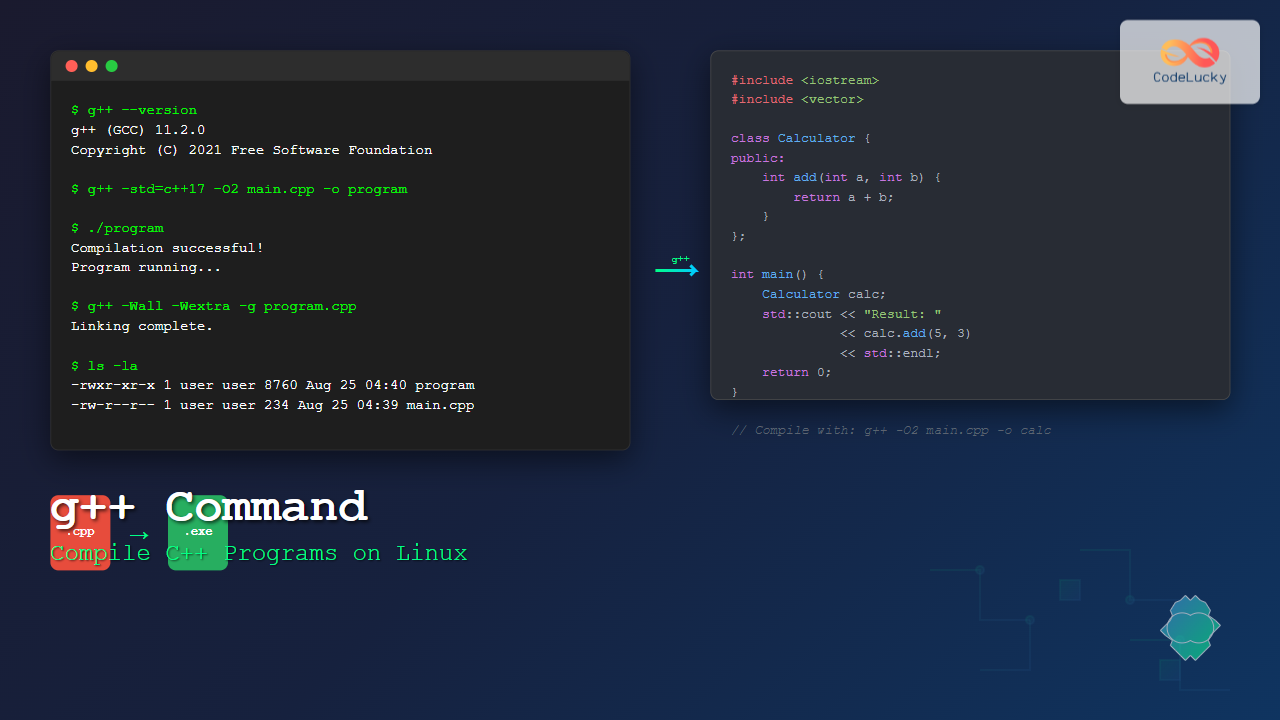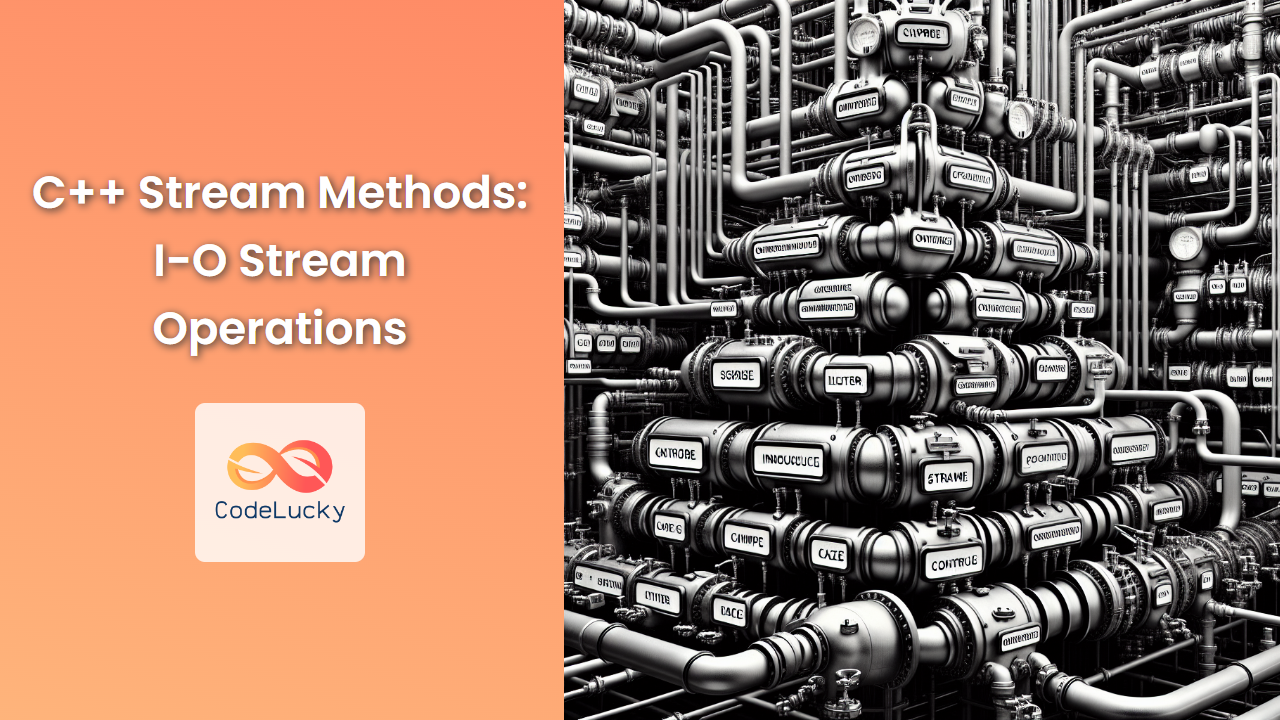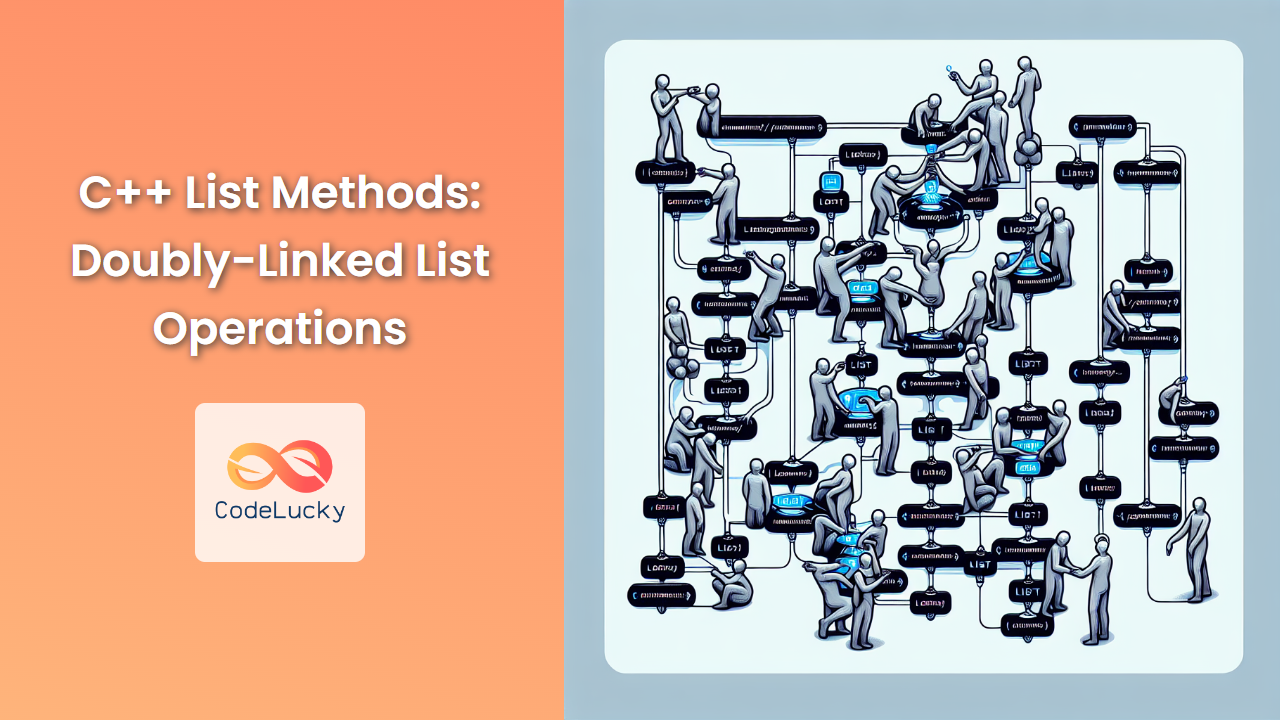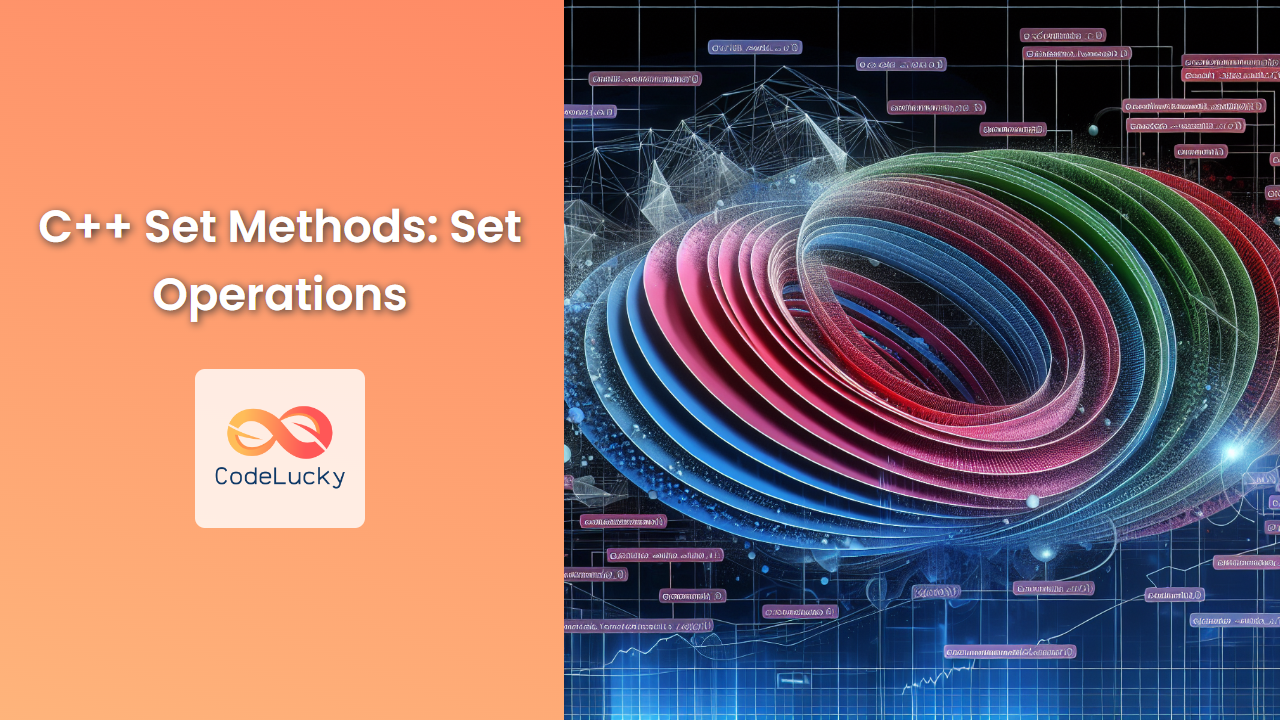Object-Oriented Programming (OOP) is a paradigm that has revolutionized the way we think about and write code. In C++, OOP is not just a feature—it's a fundamental part of the language's design. This article will dive deep into the world of OOP in C++, exploring its core concepts, benefits, and practical applications.
What is Object-Oriented Programming?
🎯 Object-Oriented Programming is a programming paradigm based on the concept of "objects," which can contain data and code. The data is in the form of fields (often known as attributes or properties), and the code is in the form of procedures (often known as methods).
In C++, OOP allows us to structure our programs in a way that groups related data and functions together, making our code more organized, reusable, and easier to maintain.
Key Concepts of OOP in C++
1. Classes and Objects
In C++, a class is a user-defined data type that encapsulates data and functions that operate on that data. An object is an instance of a class.
Let's look at a simple example:
class Car {
private:
string brand;
int year;
public:
void setBrand(string b) {
brand = b;
}
void setYear(int y) {
year = y;
}
void displayInfo() {
cout << "Brand: " << brand << ", Year: " << year << endl;
}
};
int main() {
Car myCar; // Creating an object of Car class
myCar.setBrand("Toyota");
myCar.setYear(2022);
myCar.displayInfo();
return 0;
}
Output:
Brand: Toyota, Year: 2022
In this example, Car is a class, and myCar is an object of that class.
2. Encapsulation
🔒 Encapsulation is the bundling of data and the methods that operate on that data within a single unit (like a class). It restricts direct access to some of an object's components, which is a means of preventing accidental interference and misuse of the methods and data.
In C++, we achieve encapsulation using access specifiers: public, private, and protected.
class BankAccount {
private:
double balance; // Private member, cannot be accessed directly outside the class
public:
void deposit(double amount) {
if (amount > 0) {
balance += amount;
}
}
double getBalance() {
return balance;
}
};
int main() {
BankAccount account;
account.deposit(1000);
cout << "Balance: $" << account.getBalance() << endl;
// account.balance = 2000; // This would cause a compilation error
return 0;
}
Output:
Balance: $1000
In this example, balance is encapsulated within the BankAccount class. It can only be modified through the deposit method, which ensures that only positive amounts can be added.
3. Inheritance
🌳 Inheritance is a mechanism where a new class is derived from an existing class. The new class (derived class) inherits properties and behaviors from the existing class (base class).
Here's an example:
class Vehicle {
protected:
string brand;
public:
void setBrand(string b) {
brand = b;
}
void honk() {
cout << "Tuut, tuut!" << endl;
}
};
class Car : public Vehicle {
private:
int numDoors;
public:
void setNumDoors(int n) {
numDoors = n;
}
void displayInfo() {
cout << "Brand: " << brand << ", Doors: " << numDoors << endl;
}
};
int main() {
Car myCar;
myCar.setBrand("Ford"); // Method inherited from Vehicle
myCar.setNumDoors(4);
myCar.honk(); // Method inherited from Vehicle
myCar.displayInfo();
return 0;
}
Output:
Tuut, tuut!
Brand: Ford, Doors: 4
In this example, Car inherits from Vehicle, gaining access to its brand member and honk method.
4. Polymorphism
🔄 Polymorphism allows objects of different classes to be treated as objects of a common base class. In C++, we achieve polymorphism through function overloading and virtual functions.
Here's an example of polymorphism using virtual functions:
class Shape {
public:
virtual double area() = 0; // Pure virtual function
};
class Rectangle : public Shape {
private:
double width, height;
public:
Rectangle(double w, double h) : width(w), height(h) {}
double area() override {
return width * height;
}
};
class Circle : public Shape {
private:
double radius;
public:
Circle(double r) : radius(r) {}
double area() override {
return 3.14159 * radius * radius;
}
};
void printArea(Shape* shape) {
cout << "Area: " << shape->area() << endl;
}
int main() {
Rectangle rect(5, 4);
Circle circle(3);
printArea(&rect);
printArea(&circle);
return 0;
}
Output:
Area: 20
Area: 28.2743
In this example, printArea function can work with any object derived from Shape, demonstrating polymorphism.
Benefits of OOP in C++
-
Modularity: OOP allows you to break down your code into logical, manageable chunks.
-
Reusability: Through inheritance, you can reuse code from existing classes.
-
Flexibility: Polymorphism allows for more flexible and extensible code.
-
Data Security: Encapsulation provides better control over data access and modification.
-
Easier Maintenance: OOP principles lead to more organized code that's easier to understand and maintain.
Practical Application: Building a Library Management System
Let's put these OOP concepts together in a more complex example: a simple library management system.
#include <iostream>
#include <vector>
#include <string>
using namespace std;
class Book {
private:
string title;
string author;
bool available;
public:
Book(string t, string a) : title(t), author(a), available(true) {}
string getTitle() const { return title; }
string getAuthor() const { return author; }
bool isAvailable() const { return available; }
void borrow() {
if (available) {
available = false;
cout << "Book '" << title << "' has been borrowed." << endl;
} else {
cout << "Sorry, '" << title << "' is not available." << endl;
}
}
void returnBook() {
available = true;
cout << "Book '" << title << "' has been returned." << endl;
}
};
class Library {
private:
vector<Book> books;
public:
void addBook(const Book& book) {
books.push_back(book);
}
void displayBooks() const {
cout << "Library Catalog:" << endl;
for (const auto& book : books) {
cout << book.getTitle() << " by " << book.getAuthor()
<< " - " << (book.isAvailable() ? "Available" : "Borrowed") << endl;
}
}
Book* findBook(const string& title) {
for (auto& book : books) {
if (book.getTitle() == title) {
return &book;
}
}
return nullptr;
}
};
int main() {
Library library;
library.addBook(Book("1984", "George Orwell"));
library.addBook(Book("To Kill a Mockingbird", "Harper Lee"));
library.addBook(Book("The Great Gatsby", "F. Scott Fitzgerald"));
library.displayBooks();
Book* book = library.findBook("1984");
if (book) {
book->borrow();
}
library.displayBooks();
if (book) {
book->returnBook();
}
library.displayBooks();
return 0;
}
Output:
Library Catalog:
1984 by George Orwell - Available
To Kill a Mockingbird by Harper Lee - Available
The Great Gatsby by F. Scott Fitzgerald - Available
Book '1984' has been borrowed.
Library Catalog:
1984 by George Orwell - Borrowed
To Kill a Mockingbird by Harper Lee - Available
The Great Gatsby by F. Scott Fitzgerald - Available
Book '1984' has been returned.
Library Catalog:
1984 by George Orwell - Available
To Kill a Mockingbird by Harper Lee - Available
The Great Gatsby by F. Scott Fitzgerald - Available
This example demonstrates:
- Encapsulation: The
Bookclass encapsulates book data and operations. - Abstraction: The
Libraryclass provides a high-level interface for managing books. - Modularity: The system is divided into logical units (
BookandLibraryclasses). - Code Reuse: The
Bookclass is reused multiple times within theLibraryclass.
Conclusion
Object-Oriented Programming in C++ provides a powerful way to structure and organize code. By understanding and applying the principles of OOP—classes and objects, encapsulation, inheritance, and polymorphism—you can create more robust, flexible, and maintainable software.
As you continue your journey in C++, remember that OOP is not just about syntax, but about a way of thinking about and designing software. Practice these concepts, experiment with different designs, and you'll soon find yourself writing more efficient and elegant C++ code.
🚀 Happy coding, and may your objects always be well-encapsulated!

